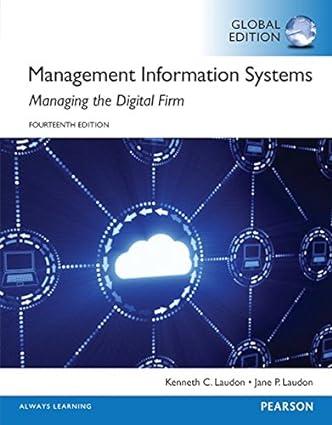2. What solutions are available for these problems? Are they management, organizational, or technology solutions? Explain your
Question:
2. What solutions are available for these problems?
Are they management, organizational, or technology solutions? Explain your answer. What’s too hot to handle? It might very well be your company’s data center, which can easily consume more than 100 times more power than a standard office building. Data-hungry tasks such as video on demand, maintaining Web sites, or analyzing large pools of transactions or social media data require more and more power-hungry machines. Power and cooling costs for data centers have skyrocketed, with cooling a server requiring roughly the same number of kilowatts of energy as running one. All this additional power consumption has a negative impact on the environment as well as corporate operating costs.
Companies are now looking to green computing for solutions. The standard for measuring data center energy efficiency is power usage effectiveness
(PUE). This metric is a ratio of the total annual power consumed by a data center divided by how much is used annually by IT equipment. The lower the ratio, the better, with a PUE of 1.0 representing a desirable target. The PUE of traditional data centers has hovered around 2.0. That means the data center is using twice the amount of electricity that’s actually needed to do the computing. (The extra power is consumed by lighting, cooling, and other systems.)
PUE is influenced by many factors, including hardware efficiency, data center size, the types of servers and their uses, the proficiency of monitoring software, building architecture, and the climate outside the facility. New data center designs with PUEs of 1.5 or better are emerging
Step by Step Answer:

Management Information Systems Managing The Digital Firm
ISBN: 9781292094007
14th Edition
Authors: Kenneth C. Laudon






